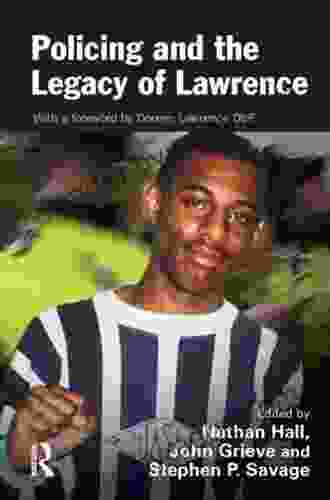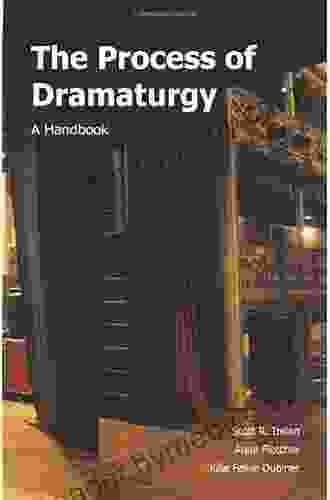Policing and the Legacy of Lawrence: Uncovering the Roots of Racial Injustice

5 out of 5
| Language | : | English |
| File size | : | 1021 KB |
| Text-to-Speech | : | Enabled |
| Enhanced typesetting | : | Enabled |
| Word Wise | : | Enabled |
| Print length | : | 322 pages |
| Screen Reader | : | Supported |
In the annals of American policing, the Lawrence Police Department stands as a stark reminder of the deep-seated racial disparities that continue to plague law enforcement today. The city of Lawrence, Massachusetts, has long been grappling with the legacy of the department's tumultuous history, which culminated in a landmark 2013 verdict that exposed the systemic bias within its ranks.
This meticulously researched article delves into the complexities of racial profiling, systemic biases, and the ongoing struggle for police reform in the wake of the Lawrence verdict. Through a comprehensive examination of court documents, interviews with community members, and expert analysis, we will uncover the roots of racial injustice in Lawrence and explore its profound impact on policing in America.
The Lawrence Verdict: A Watershed Moment
The year 2013 marked a watershed moment in the history of American policing. After a six-year legal battle, a federal jury found the Lawrence Police Department liable for engaging in a pattern of unconstitutional racial profiling. The verdict sent shockwaves throughout the country, exposing the widespread prevalence of racial bias within law enforcement agencies.
The trial revealed a disturbing pattern of discriminatory practices by the Lawrence Police Department. Officers were found to have stopped and questioned Black and Latino drivers at a disproportionately high rate, often without any reasonable suspicion of criminal activity. These stops were often accompanied by aggressive and humiliating treatment, further eroding trust between the police and the community.
The Lawrence verdict was a resounding victory for civil rights advocates and marked a significant step towards addressing the deep-seated racial disparities in American policing. However, it also laid bare the daunting task of reforming a system that has been ingrained with bias for generations.
Systemic Bias and the Roots of Racial Injustice
The Lawrence Police Department is not an isolated case. Systemic bias is a pervasive problem in law enforcement agencies across the United States. Studies have consistently shown that Black and Latino drivers are more likely to be stopped, searched, and arrested than white drivers, even when controlling for factors such as criminal activity and socioeconomic status.
This systemic bias has its roots in a long history of discrimination and racism in America. From the era of slavery to the Jim Crow era to the War on Drugs, law enforcement has been used as a tool to suppress and control marginalized communities. This legacy continues to shape policing practices today, leading to disproportionate targeting and excessive use of force against people of color.
In Lawrence, the systemic bias within the Police Department was exacerbated by a lack of diversity and accountability. The department was predominantly white and male, with little representation from the communities it served. This lack of diversity contributed to a culture of insularity and a failure to understand the experiences and perspectives of Black and Latino residents.
The Struggle for Police Reform
In the aftermath of the Lawrence verdict, the city has embarked on a challenging journey of police reform. The department has implemented a number of new policies and training programs aimed at reducing racial profiling and building trust with the community. These efforts have included:
- Body cameras: All officers are now required to wear body cameras, which provide a record of police-citizen interactions.
- Bias training: Officers receive regular training on implicit bias and how to avoid discriminatory practices.
- Community policing: The department has increased its focus on community policing, which emphasizes building relationships and partnerships with residents.
These reforms are a step in the right direction, but much more work remains to be done. The struggle for police reform is an ongoing one, and it requires the active engagement of both law enforcement and the communities they serve. Only through a sustained commitment to transparency, accountability, and community-based policing can we hope to create a more just and equitable system of law enforcement.
The legacy of the Lawrence Police Department is a complex and sobering one. It is a story of racial profiling, systemic bias, and the ongoing struggle for police reform. However, it is also a story of hope and resilience. The Lawrence community has shown remarkable determination in demanding accountability and working towards a more just future.
As we continue to grapple with the challenges of policing in America, the lessons learned from Lawrence can serve as a roadmap for change. By confronting the deep-seated biases that have plagued law enforcement for generations, we can create a more just and equitable system that serves all members of our society.
5 out of 5
| Language | : | English |
| File size | : | 1021 KB |
| Text-to-Speech | : | Enabled |
| Enhanced typesetting | : | Enabled |
| Word Wise | : | Enabled |
| Print length | : | 322 pages |
| Screen Reader | : | Supported |
Do you want to contribute by writing guest posts on this blog?
Please contact us and send us a resume of previous articles that you have written.
 Book
Book Novel
Novel Page
Page Chapter
Chapter Text
Text Story
Story Genre
Genre Reader
Reader Library
Library Paperback
Paperback E-book
E-book Magazine
Magazine Newspaper
Newspaper Paragraph
Paragraph Sentence
Sentence Bookmark
Bookmark Shelf
Shelf Glossary
Glossary Bibliography
Bibliography Foreword
Foreword Preface
Preface Synopsis
Synopsis Annotation
Annotation Footnote
Footnote Manuscript
Manuscript Scroll
Scroll Codex
Codex Tome
Tome Bestseller
Bestseller Classics
Classics Library card
Library card Narrative
Narrative Biography
Biography Autobiography
Autobiography Memoir
Memoir Reference
Reference Encyclopedia
Encyclopedia Wijnand Jongen
Wijnand Jongen Noret Flood
Noret Flood Pat Pattison
Pat Pattison Marina J Bowman
Marina J Bowman Susan K Grove
Susan K Grove Kurt Ament
Kurt Ament Marla Frazee
Marla Frazee William King
William King Steven K Scott
Steven K Scott Roy Keane
Roy Keane T Jefferson Parker
T Jefferson Parker Richard A Jaffe
Richard A Jaffe Louis Barthas
Louis Barthas Torey L Hayden
Torey L Hayden William G Borchert
William G Borchert Rumiko Takahashi
Rumiko Takahashi Krista Tippett
Krista Tippett Sue Black
Sue Black Quharrison Terry
Quharrison Terry Mark Roberts
Mark Roberts
Light bulbAdvertise smarter! Our strategic ad space ensures maximum exposure. Reserve your spot today!

 Dale MitchellSilenced No More: Uncover the Shocking Truth with Sarah Ransome's Gripping...
Dale MitchellSilenced No More: Uncover the Shocking Truth with Sarah Ransome's Gripping... Arthur C. ClarkeFollow ·15.3k
Arthur C. ClarkeFollow ·15.3k Jaime MitchellFollow ·2.4k
Jaime MitchellFollow ·2.4k Virginia WoolfFollow ·7.9k
Virginia WoolfFollow ·7.9k Samuel WardFollow ·19.3k
Samuel WardFollow ·19.3k Justin BellFollow ·11.3k
Justin BellFollow ·11.3k H.G. WellsFollow ·19.8k
H.G. WellsFollow ·19.8k James JoyceFollow ·14k
James JoyceFollow ·14k William GoldingFollow ·10k
William GoldingFollow ·10k

 Wayne Carter
Wayne CarterThe Beginner's Guide to Making an Old Motor Run Forever
If you're like most...

 Deacon Bell
Deacon BellNepali Adventure: Kings and Elephant Drivers,...
In the heart of the...
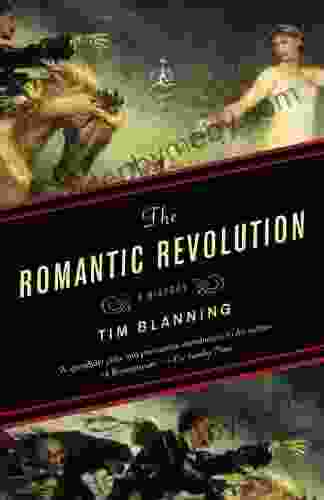
 Carlos Drummond
Carlos DrummondThe Romantic Revolution: A Journey Through History and...
Unveiling the...
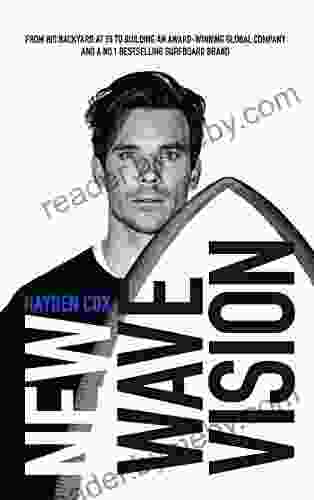
 Kazuo Ishiguro
Kazuo IshiguroUnlock Your Inner Innovator: Dive into the New Wave...
Embark on a Transformative Journey of...
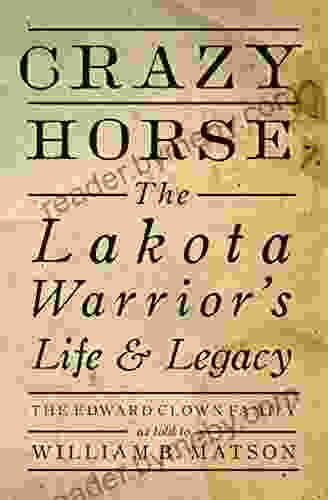
 William Golding
William GoldingCrazy Horse: The Lakota Warrior's Life and Legacy
In the annals of Native...

 Hector Blair
Hector BlairMildred and Richard Loving: The Inspiring Story of...
Mildred and Richard Loving were an...
5 out of 5
| Language | : | English |
| File size | : | 1021 KB |
| Text-to-Speech | : | Enabled |
| Enhanced typesetting | : | Enabled |
| Word Wise | : | Enabled |
| Print length | : | 322 pages |
| Screen Reader | : | Supported |


